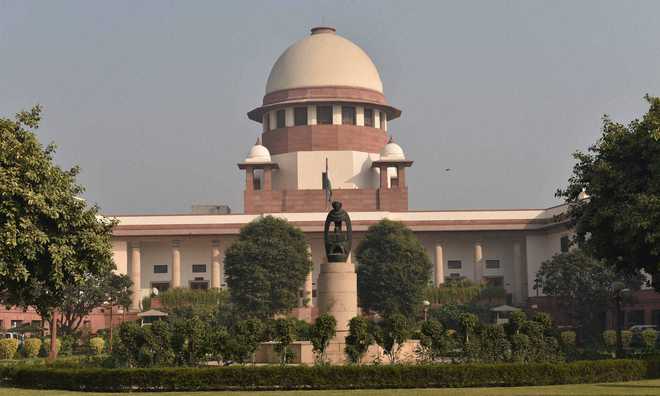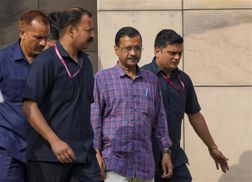
New Delhi, March 20
The Supreme Court on Tuesday took note of the submission that a person cannot be asked to part with personal information under Aadhaar scheme on the ground of freedom of right to religion, and asked can a person refuse to follow the law in secular matters such as filing of income tax returns.
A five-judge Constitution Bench headed by Chief Justice Dipak Misra, which is hearing pleas challenging the constitutional validity of Aadhaar and its enabling Act, was told that a boy was denied admission in school after his father refused to give biometric details for Aadhaar on the ground that their religion did not permit it.
"In secular matters, can you say that I will not opt for it? For example, can a person refuse to opt for the Income Tax saying that his conscience does not allow it?" the Bench, also comprising Justices AK Sikri, AM Khanwilkar, DY Chandrachud and Ashok Bhushan, asked.
Senior lawyer Sanjay Hegde, appearing for an individual, referred to Article 25 (right to freedom of religion) of the Constitution and said it provided that there would be freedom of "conscience and free profession, practice and propagation of religion".
At the outset, senior advocate Meenakshi Arora, appearing for a petitioner opposed to Aadhaar, said that in the name of national security, the State cannot assume "unfettered" power over its citizens and treat them like its subjects.
“The State can put a specific person under surveillance, but it cannot pass a law to keep a tab on the activities of over 1.3 billion people,” she said.
Collection and retention of data by the UIDAI was illegal, she said, adding that while the Aadhaar law provides for an alternative method to prove identity to citizens who do not have Aadhaar, the rules make Aadhaar compulsory.
"We cannot afford something like this that the big brother is continuously watching us. This is unacceptable in a democracy. In such a large democracy, the government cannot take unfettered power, which would lead to arbitrary interference," she said.
"State cannot be allowed to make exercise of fundamental rights subject to a license, which is probabilistic. This deprives individuals of control over their identity, and violates dignity," Arora said.
Aadhaar law lacked data security and it violated the constitutional principle of right to life, protection, security and privacy, she said.
Besides Arora and Hegde, four other lawyers advanced arguments against the Aadhaar scheme. Attorney General KK Venugopal would commence his submissions on behalf of the Centre on Wednesday.
During the daylong arguments, senior advocate CU Singh raised the issue of child rights and said that the children are legally unable to give free consent, they cannot enter into a contract and yet they are asked to go for Aadhaar.
"A child in India, under law, cannot consent or enter into contracts. In this background, to say that a child should be made subject to a mandatory regime of Aadhaar stands on a different footing," he said and referred to various laws.
Senior advocate Sajan Poovayya, appearing for Justice (Retd) Anand Byrareddy, distinguished between statistical and personal data and said that a person must have the right to decide the extent to which he or she wanted to share the information with the authorities.
The Aadhaar law is bad because the "definition of biometric is open ended, and the government can add to it through regulations", he said.
"The Act fails to satisfy the test of proportionality and causes an unwarranted intrusion into an individual's fundamental freedoms," he said.
"The stated objective of the Aadhaar Act to identify targeted beneficiaries of State resources needs to be judged on the anvil of the necessity of the measures adopted under the Act to meet the objective as well as the possibility of achieving this objective by imposing a less drastic restriction on the fundamental freedoms of the individual," Poovayya said.
Personal data is an individual's property and cannot be captured by the state, he said.
The court had earlier extended the March 31 deadline for mandatory linking of Aadhaar to avail various services and welfare schemes run by the government till it delivered its verdict on the validity of the 12-digit biometric number and its enabling law. PTI



























